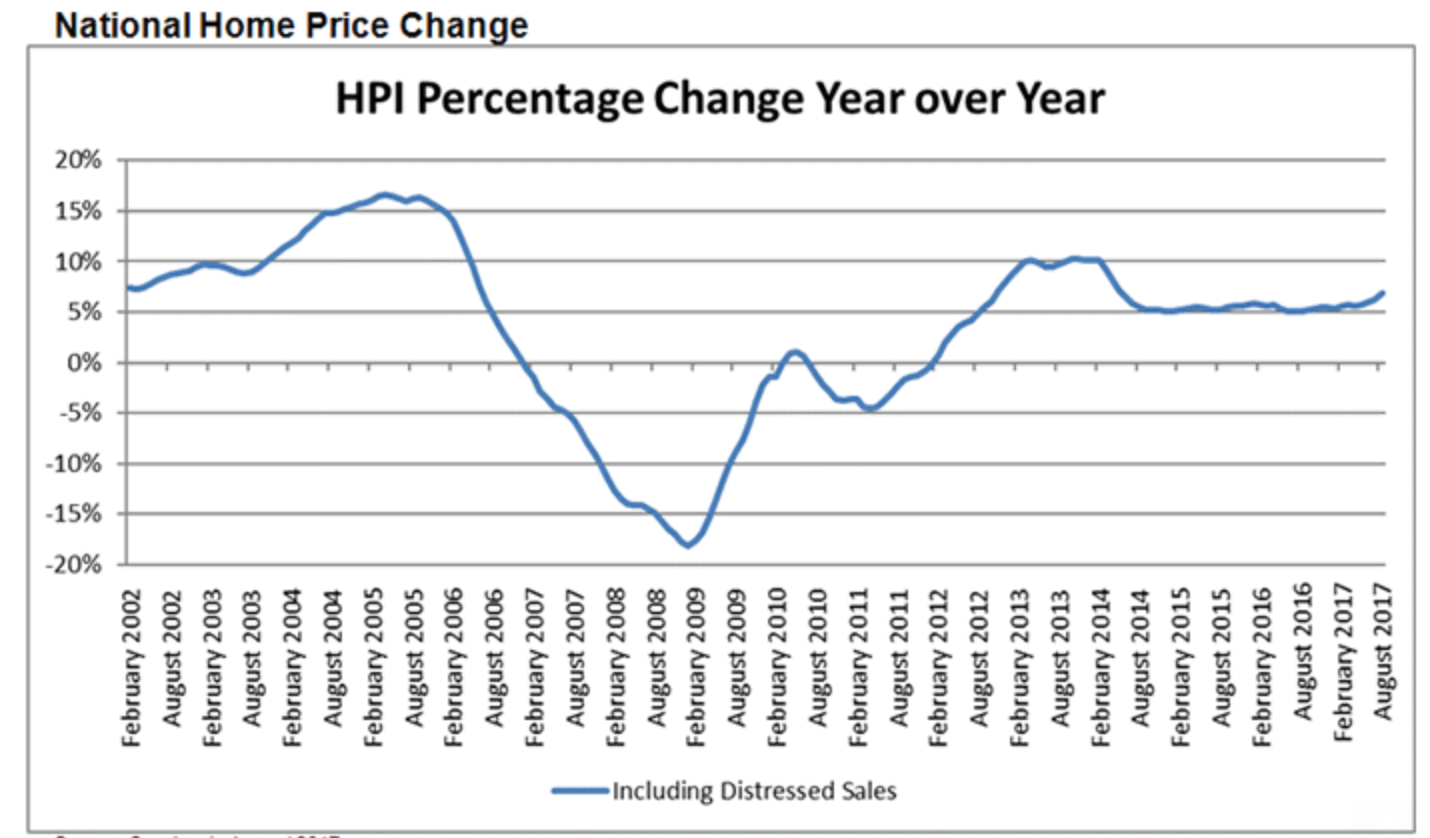Home prices increased across the U.S. once again, and will only continue to climb, though at a much slower pace, according to the latest Home Price Index and HPI Forecast by CoreLogic, a global information, analytics and data-enabled solutions provider.
Home prices showed strong growth in August with an increase of 6.9% from the year before and 0.9% from July, according to the index.
In some areas this price growth was much higher, most notably in Las Vegas, where home prices increased 8.4% from last year.
But while this growth is expected to continue, CoreLogic predicts the increase rate will waiver. Home prices are forecasted to increase by just 0.1% from August to September, and 4.7% by August 2018, according to the HPI Forecast.
The CoreLogic HPI Forecast is a projection of home prices using the CoreLogic HPI and other economic variables. Values are derived from state-level forecasts by weighting indices according to the number of owner-occupied households for each state.
“While growth in home sales has stalled due to a lack of inventory during the last few months, the tight inventory has actually helped stabilize price growth," CoreLogic Chief Economist Frank Nothaft said. “Over the last three years, price growth in the CoreLogic national index has been between 5% and 7% per year, and CoreLogic expects home prices to increase about 5% by this time next year.”
The chart below shows home price growth has remained at or near 5% since the middle of 2014.
Click to Enlarge
(Source: CoreLogic)
However, while price growth may be stabilized, it still continues to price first-time homebuyers out of the market as they struggle to save up enough. A recent study from First American Financial Corp. shows affordability continues to decrease.
Similar to the previous month, CoreLogic found 34% of the country’s largest 100 metropolitan areas are overvalued as of August, according to its Market Conditions Indicators data. The data also showed 27% of the markets were undervalued and 39% were at value.
The MCI analysis categorizes home prices in individual markets as undervalued, at value or overvalued by comparing home prices to their long-run, sustainable levels, which are supported by local market fundamentals such as disposable income.
“Nearly half of the nation's largest 50 markets are overvalued,” CoreLogic President and CEO Frank Martell said. “The lack of real estate affordability has spread beyond the typically expensive coasts into the interior of the nation, hitting cities such as Denver, Nashville, Austin and Dallas.”








